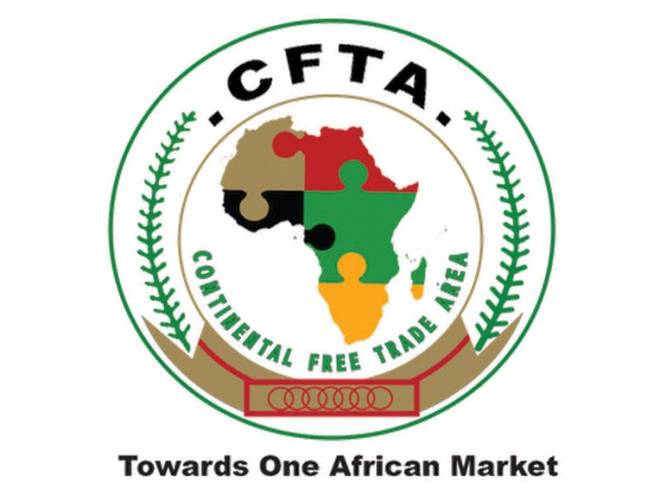Let us study European Union- Especially Greece and Germany
The underbelly of the Nigerian economy will now be exposed if we don’t buckle up and act fast. But it is also the greatest opportunity we could ever have. We should study what happened between Greece and Germany to understand the impact of laziness and slothfulness when a country enters a free trade agreement and what focus, strategy, discipline, hard work, unity, and self-motivation can achieve also. Greece was a high inflation economy with high deficits and debts. Nigeria should mind its debts especially if they are not contributing remarkably to economic growth. Anyway, Greece sells tourism and little else. Germany produces German machines – from the best cars in the world to the best industrial machines. What the low domestic inflation in Germany means is that she is able to produce goods cheaper and sell cheaper within Europe, while other countries like Greece, Italy, Portugal, Spain and others have to worry about the need to increase wages which further price most of what they trade out of the market. Other competitors for trade must be considered. Our African Trade Agreement does not stop the Americans or Europeans from trading with African countries. In fact one of the scariest things around that agreement is the involvement of Europe which we hear has given out $40bn to African countries to accelerate the deal. Why? What is in it for them legally? Why are they so concerned? Is France really going to use her francophone former colonies to push in goods to the whole of Africa? What will Britain also do in retaliation now that she is in a quandary over Brexit and gasping for air anywhere she can find some?
General economic management
Just as it is for inflation management, other monetary policy instruments need to be kept on a tight leash in order to benefit from the trade pact, which is actually a double-edged sword. Free Trade could over result a win-lose scenario; a zero-sum game. What you lose, someone else gains, and vice versa. Interest rate levels have to be low relative to others otherwise goods and services produced in your country cannot compete with those of others. Exchange rate management needs to be superb too. Fiscal policies are our key problem in Nigeria. We know this. There is real fiscal insanity in this country, and so monies that we should even accrete to reserves in order to have a stronger Naira, or spend on tangible infrastructure to boost productivity, we keep spending on frivolities and ego tripping like there will be no tomorrow. Now tomorrow is breathing down our necks. Can we truly change? Will we keep doing what we have always done, in the way we have been doing them, and hope that things will change for the better? An unsustainable debt situation for example cramps the ability of a country to maneuver in a free-trade arrangement. Greece and a few others had that problem. Debt servicing eats up a country’s abilities to boost productivity, stabilize currencies or take care of her poor people. Ours is currently about 70% of our revenue and growing! We must boost revenue and slow down on this easy route of debt acquisition. We have been warning about this to no avail. Our governors announced they are taking $4bn of cheap loans from the World Bank to eradicate illiteracy, provide water for the people and build roads – projects that have no cash flow and that we should do with our internal capacities. The FGN is taking $2.76bn at least, to balance the budget. By the end of this year, Nigeria could be owing $100bn, up $20bn from the current $80bn. We have never owed these kinds of amounts!
Economic complexity
Check out this resource on Economic Complexity: https://atlas.media.mit.edu/en/rankings/country/neci/. In it, Nigeria ranks 124thout of 129 countries. This resource from the MIT describes Economic Complexity as “the relative knowledge intensity of an economy and the products it exports”. Nigeria exports mostly crude oil and agricultural products, just as most African economies. In other words there is very low knowledge intensity in most of the goods we produce and export. Crude oil production is very scientific but we don’t own the process, the science or the technology. The few manufacturing companies we have also have to import their technology from abroad and we suffer perennially from not being at the cutting edge of innovation, meaning that we often use obsolete technology that cannot compete globally for efficiency, and of course cost management. But for how long can we compete within Africa even if we got serious? The African Trade Agreement has just shown us that we have no time at all to tidy up our affairs and all the lamentations by some of us over the years ought to have been heeded rather than a scenario where our leaders were hoping the cup will pass over us, that African free trade will not be a reality, and that we can remain an Island. For one, it will be great to see African countries leverage on our internal strengths as a continent, and encourage each other to greatness. Nigeria may have bungled the opportunity to lead the way for other African countries, and we may yet be unsure of the challenges ahead on this project, but we have hit a turning point. From here on, it is make or mar, especially for this country. I hope we will wake up and seize the occasion.

 Join Daily Trust WhatsApp Community For Quick Access To News and Happenings Around You.
Join Daily Trust WhatsApp Community For Quick Access To News and Happenings Around You.

